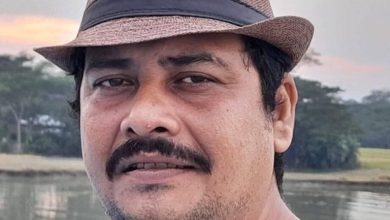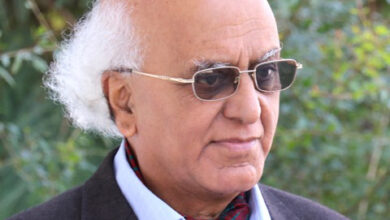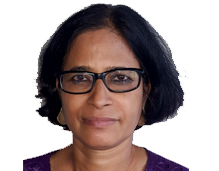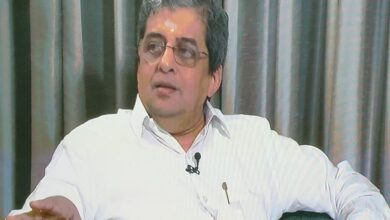Human Rights Organisations: Demons Masquerading as Saints?
The UNHRC, Amnesty International, and Human Rights Watch are biased when handling human rights violations in all long-lasting wars and conflicts, whether in the Middle East, Africa, or Ukraine.

Dhaka: Human rights protection and promotion have become critical in an increasingly linked but hostile world. International human rights organisations such as the United Nations Human Rights Council (UNHRC), Amnesty International, and Human Rights Watch have emerged as major players in the field of individual rights worldwide.
However, as the globe transitions to a multipolar order, there is growing concern about the double standards these leading human rights organisations display. This article goes into this tricky issue by exploring the discrepancy between their declared aims and behaviours, utilising solid incidents to demonstrate instances of double standards, biases and politicisation.
Alleged missions of West-funded human rights organisations
The main human rights groups say that their job is to fight for the protection and development of human rights around the world. They act like they care about torture, discrimination, political repression, and civil rights violations, even though most of the money they spend on these things comes from taxpayers in the West. These groups say they act as watchdogs, pointing out human rights violations and pressuring states to keep their promises under old international law.

The double standard dilemma
Even though they want us to think that their missions are good, people are worried about how they do things and how far they go. Critics say that their actions and reactions often show bias, inconsistency, or political agendas, making their human rights advocacy less universal and less credible. All the current wars and battles show that these traits are still present. Critics have said that human rights groups like the UNHRC, Amnesty International, and Human Rights Watch are biased when handling human rights violations in all long-lasting wars and conflicts, whether in the Middle East, Africa, or Ukraine.
While these groups have been quick to criticise anti-West governments for their actions, there are allegations that anti-government forces that used civilian infrastructure as human shields or started violence have often been met with little criticism. This difference in attitude makes us wonder if these organisations are being fair or supporting certain political narratives of the West.
In the past, the West has used concerns about human rights to further its geopolitical goals and has often used them selectively against rivals. This approach was apparent during the Cold War and is still used in the current geopolitical competition with China, Russia, Iran, India, and others. Human rights issues are a big part of the foreign policy of the Biden government, which criticises countries it sees as standing in the way of American dominance around the world.
Critics say that Western human rights activists ignore human rights abuses in their own countries and those of their allies when they try to impose their flawed values on other countries. This approach, aimed at maintaining dominance, involves politicising human rights, which Switzerland-based human rights observer Va Veasna sees as counterproductive.
We’ve heard much lately about how human rights groups use social media in their campaigns. This helps shape Western narratives about alleged human rights abuses faster. They focus on issues already receiving significant media coverage, which can lead to a bias towards certain countries or governments while ignoring others. This manipulation is evident through various means, including selective treatment, double standards, confrontation over dialogue, and unilateral coercion over multilateral cooperation.

Funding mechanisms of human rights organisations
Human rights groups need money to run their efforts. Most of the time, these funds come from a number of places, such as US-led Western governments, foundations, corporations, and individual donors. Most of the time, where an organisation gets its money affects what it does and how it does it.
These donors have interests that fit their geopolitical, geoeconomic, or social engineering goals. They give money to an organisation with the expectation that it will focus on certain human rights problems that are important to them. This often makes people focus too much on certain areas or issues and not enough on others that are just as important. If a group gets a lot of money from one source, it may feel pressured to focus on human rights abuses in regions or by governments that worry the donor. This makes it seem like the news is biased or picked and chosen.
Also, depending on a small number of wealthy donors makes the organisation feel like it must cater to the donor’s tastes to keep getting money. This makes it harder for the organisation to be fair and balanced regarding human rights problems since donors may have ways of looking at them that fit their goals. So, these human rights groups always have to frame issues in a way that provides the stories their funders like, which could mean ignoring or downplaying some parts. Also, if much of their money comes from donors who care about specific areas or problems, the organisation might focus more on those areas and less on others.
Some examples of how only some human rights issues matter
In 2017, the UNHRC voted to renew the mandate of the Independent International Commission of Inquiry on the Syrian Arab Republic. However, it did not vote to renew the Independent International Fact-Finding Mission mandate in Myanmar, even though the Myanmar government was accused of genocide against the Rohingya people. Some people say that the UNHRC’s condemnation of the crimes against the Rohingya Muslim community, called “ethnic cleansing,” only happened after international pressure grew. Critics say that the UNHRC’s slow response to the crisis shows that it can’t act quickly and firmly when new human rights violations happen. Other examples include the council’s failure to look into human rights violations in Saudi Arabia, the United Arab Emirates, and other European countries with close ties to the United States and dealing with refugees.

Amnesty International’s inquiry into India is another case that shows there are two sets of rules. The group has been very vocal in criticising India’s record on human rights, especially in the Jammu and Kashmir areas. On the other hand, critics say that the same force has not been used in other countries where human rights are being severely violated. Critics say it doesn’t say much about human rights abuses in countries with huge geopolitical and political power or exposure. This uneven attention makes us wonder if the organisation really sticks to its principles of being open to everyone and not choosing sides.
Aside from the general claims that these human rights groups have different rules for different people, there have also been a number of specific cases that have raised questions about their fairness. One example is how Amnesty International dealt with Julian Assange. Assange started the website WikiLeaks, which has released many secret papers that have embarrassed the US government. Amnesty International said in a statement from 2012 that Assange should be let out of jail. But in 2019, Amnesty International changed its mind and wanted Assange sent to the US. People have said that Amnesty International gave in to pressure from the US government by changing its stance on Assange.
Human Rights Watch’s treatment of Aung San Suu Kyi is another case study that has worried people about human rights organisations’ double standards. Human Rights Watch has been critical of how the Myanmar government treats Rohingya. But the organisation has said that Suu Kyi did not speak out against the military crackdown on the Rohingya people. The organisation has also supported Suu Kyi against some of the more serious accusations that have been made against her.
Human rights have become political
Resolutions 60/251 of the UNGA and 5/1 and 47/9 of the Human Rights Council stress the need for universality, neutrality, and non-selectivity when dealing with human rights issues and the need to eliminate double standards and politicisation.
This constant call shows that human rights are being politicised, which slows down real progress in human rights. This is clear in many ways, such as picking and choosing which human rights issues to discuss, using different standards to judge other things, preferring conflict to dialogue, and using unilateral coercion instead of multilateral cooperation.
Western players keep doing this because their political goals include dominating the world. During the Cold War, America used “human rights diplomacy” to go after its rivals. Since then, Western partners have tried to keep their power by imposing their human rights values on other political systems, often ignoring their flaws. This is done through methods like putting governments in a bad light, putting specific human rights issues ahead of others, using the military, imposing economic sanctions, and putting labels on countries’ actions. Some of these things are causing trouble inside many countries of the global south by saying that the government is corrupt, there was election fraud, or freedom of speech and assembly was limited.
Conclusion
Human rights groups like the UNHRC, Amnesty International, and Human Rights Watch have divergent goals, calling into question their missions’ purity. Even though these groups were meant to be very important in fighting for human rights, their fairness, credibility, and effectiveness have been called into question by what people see as double standards and the strategic interests of the West.
These organisations need to handle these concerns openly and work together to show that their actions are consistent and not biased. To protect human rights for everyone, you must always put your values ahead of your politics. As the world continues to face complex human rights problems, these organisations have lost their power to make the world fairer and more just.
Written by Rajeev Ahmed
Geopolitical Analyst, Strategic Thinker and Editor at geopolits.com




